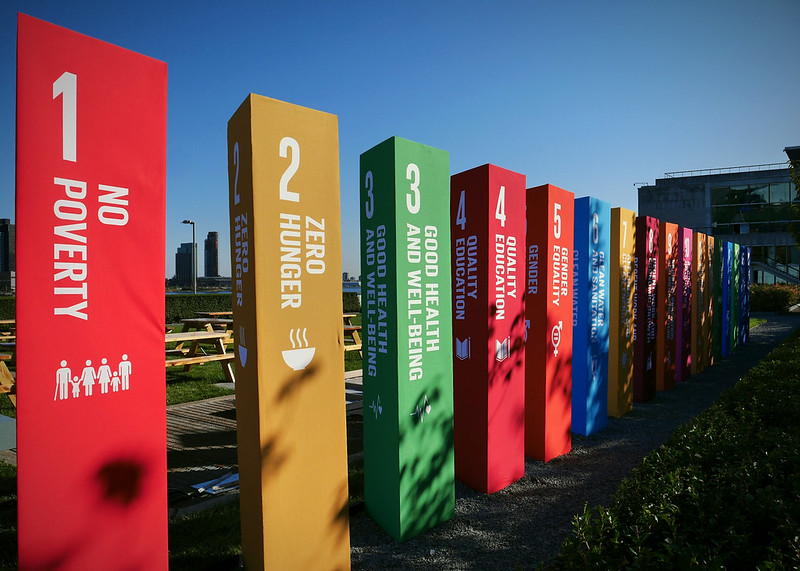LDCs flag climate finance as urgent 2021 priority

His Excellency Sonam P. Wangdi has indicated that channeling finance to the world’s poorest, most climate-affected people and putting the protection of climate and nature at the heart of economic recovery from Covid-19 are priority global challenges for 2021.
Speaking at an ‘LDC reflections on 2020’ event, the Chair of the Least Developed Country (LDC) Group of climate negotiators said the Group would call this year for short-term climate actions to close emissions gaps. These urgent actions should be in line with countries’ Long Term Strategies to net zero emissions aimed at limiting global warming to 1.5 degrees. Actions would require “transformative changes across all aspects of society” and further, “we must see developed countries scale up support for LDCs,” he urged. “We look forward to developing a new climate finance goal based on science and the needs of LDCs.”
$100 billion climate finance goal to be revised
Parties to the UNFCCC agreed that by 2020, the scale of international climate finance flows from developed to developing countries should reach US$100 billion per year. However, there are question marks over whether the $100 billion target (which is meant to be a ‘floor’ – a minimum amount) will be reached. The OECD calculates that by 2017, the figure had reached US$71 billion.
The UNFCCC’s Standing Committee on Finance will release its Biennial Assessment Report of climate finance flows in mid-2021, based on the finance data from 2017-18, and this will give the most up-to-date official picture.
As climate-related losses and damages take an increasing toll on exposed and vulnerable communities across the world, it is evident that a far higher climate finance goal will be needed in the decade ahead. In a recent interview with CASA, H. E. Wangdi said the LDC Group now estimates that $93 billion per year is required in climate finance to LDCs alone.
The just-released United Nations Adaptation Gap report finds, “the finance needed to implement [countries’ adaptation] plans is not growing fast enough” and “despite an increase in finance available for adaptation, the adaptation finance gap is not closing.”
The Covid-19 pandemic has compounded poverty, inequality, climate impacts and other shocks and stresses to hit the poorest people the hardest. Andrew Norton, IIED Director, told the LDC reflections event that 2020 “may be the first time in recorded history that inequality has increased in virtually every country in the world – Oxfam has calculated it took 9 months for the pre-pandemic billionaires to return to their previous wealth whereas for the poorest it could take more than a decade.”
Disruption to climate diplomacy
The Covid-19 pandemic has slowed the pace of the international climate negotiations, too. UNFCCC COP26 in Glasgow, UK has been postponed by one year to November 2021. It will be the place where nations begin talks in earnest on revising the $100 billion for a new post-2020 global climate finance target.
During the past year, “LDCs faced challenges in adapting to the new normal,” H.E. Wangdi said. “Increased virtual engagement drastically impacted our climate diplomacy. Our time zone management and limited internet connected impacted our participation in international climate forums. Several LDCs reported delays in their NDC (Nationally Determined Contribution) and NAP (National Adaptation Plan) processes.”
“Still, we strove to maintain momentum,” H.E. Wangdi continued. “We used interactions to draw together issues and priorities. It culminated in the Thimphu Ambition Summit, which showcased LDC leadership on climate action and demonstrated the need for the international community to scale up climate finance.”
Gladys Habu, a youth leader from the Solomon Islands, concurred with Wangdi on the challenges for climate diplomats from small island states and LDCs. The reality, she said, is that events are now held virtually and participants with faltering telecommunications services struggle to connect. Time zones are also a challenge: “sometimes having to be up at 3am puts people off.”
Fast forward for ambitious, inclusive action
To enhance climate action, Ms Habu said, “national governments should ensure our telecommunications are working well. Covid is not going away, we will have to deal with it for some time still.”
“Negotiating and decision-making must be inclusive, and ensure processes and meetings are well represented,” H.E. Wangdi concluded.
Getting digital diplomacy working for the LDCs may be a key to achieving climate diplomacy success in 2021 – including making progress on the new global climate finance goal.
Reporting by Mairi Dupar, CASA.
Image: Sustainable Development Goals on display at the United Nations complex, New York, credit UNFCCC.